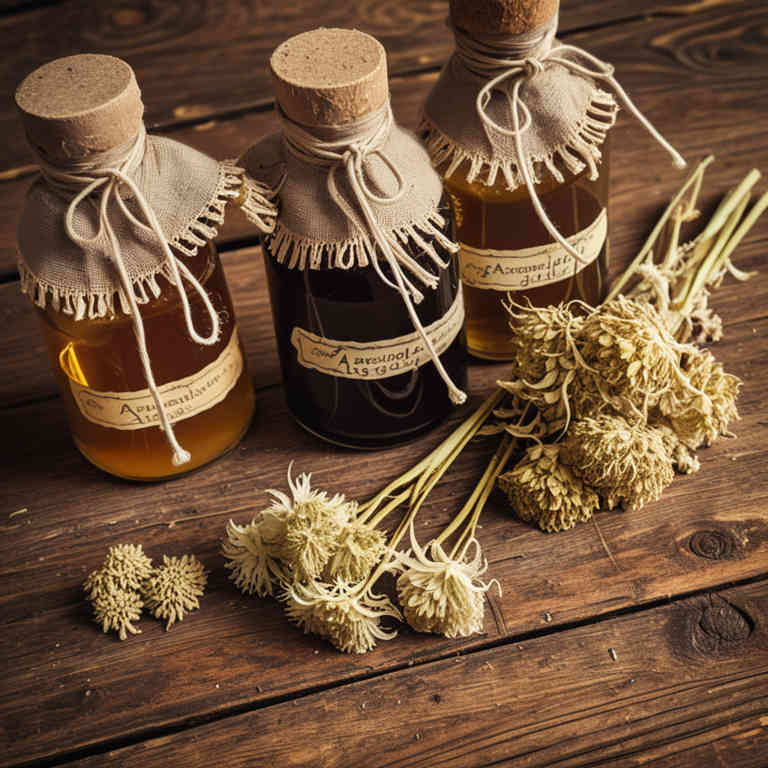Angelica archangelica syrup for medicinal use

Angelica archangelica syrup is a traditional herbal preparation made from the root of the angelica plant, often combined with honey or sugar and sometimes other herbs.
It is used in herbalism to support digestion, relieve respiratory congestion, and promote overall vitality. The syrup is believed to have warming properties that can help with colds, coughs, and seasonal fatigue. It is also valued for its potential to ease menstrual discomfort and support liver function.
This preparation is commonly used in homeopathic and holistic medicine for its purported soothing and nourishing effects.
Uses
Angelica archangelica syrup has been used to treat respiratory and digestive ailments for centuries.
Historically, it was valued in traditional medicine for its purported ability to relieve coughs, bronchitis, and other respiratory conditions. In folk remedies, it was also believed to aid in digestion and improve appetite. Modern herbal practitioners continue to use the syrup for its expectorant properties and as a remedy for colds and flu.
Today, it is also appreciated for its potential antioxidant and anti-inflammatory benefits.
Benefits
Angelica archangelica syrup has health benefits such as aiding digestion, supporting respiratory health, and promoting circulation.
It is often used to relieve symptoms of coughs, colds, and bronchitis due to its expectorant properties. The syrup may also help reduce inflammation and support the immune system. Additionally, it is believed to have calming effects that can ease stress and anxiety.
This herbal preparation is traditionally used in various cultures for its warming and nourishing properties.
Constituents
Angelica archangelica syrup active constituents include essential oils, such as limonene and phellandrene, as well as compounds like angelica acid and volatile oils.
These components contribute to its traditional use in supporting respiratory health and alleviating symptoms of colds and coughs. The syrup is also believed to have antispasmodic and expectorant properties, which may help loosen mucus and ease breathing. Additionally, it contains flavonoids and other phytochemicals that may provide antioxidant benefits.
Overall, these active constituents make Angelica archangelica syrup a popular remedy for seasonal respiratory discomfort.
Preparation
To make Angelica archangelica syrup, start by washing and slicing fresh or dried Angelica root.
Place the sliced root in a saucepan and add enough water to cover it by about an inch. Bring the mixture to a boil, then reduce the heat and let it simmer for 30 to 40 minutes until the liquid reduces by half. Strain the liquid through a fine mesh strainer or cheesecloth to remove the solids.
Finally, mix the strained liquid with an equal amount of honey or sugar syrup, and store it in a sterilized jar in the refrigerator.
Side Effects
Angelica archangelica syrup may lead to gastrointestinal discomfort, including nausea, vomiting, and diarrhea, especially when consumed in large quantities.
It can also cause allergic reactions in individuals sensitive to plants in the Apiaceae family, such as carrots or celery. Prolonged use may result in liver damage due to the presence of phototoxic compounds like furanocoumarins. It is contraindicated for pregnant women as it may stimulate uterine contractions and increase the risk of miscarriage.
Additionally, it may interact with certain medications, particularly those affecting the liver or blood clotting.